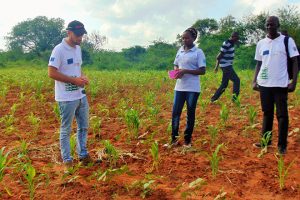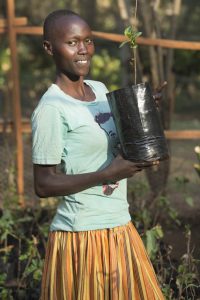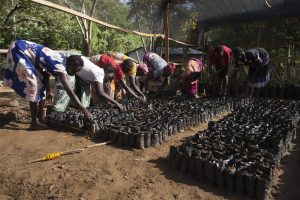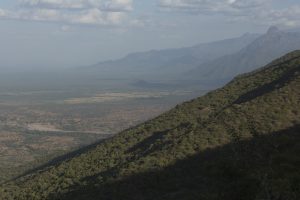The commitment of Italian Cooperation in this sector has historically aimed to reduce the climatic and environmental vulnerability of populations by promoting the use of more sustainable agricultural approaches that allow for better yield and land conservation. Specifically, agricultural sector projects contribute to the adoption of agro-ecological models through the promotion of sustainable cultivation techniques and practices that ensure qualitative and quantitative increases in production while also improving farmers' income.
Agricultural initiatives are predominantly concentrated in arid and semi-arid areas (ASAL), regions characterized by low human development and high vulnerability, as evidenced by high levels of poverty. AICS focuses agricultural initiatives on supporting the fight against climate change, including through the introduction of 'Climate Smart' agricultural practices that promote adaptation to climate variability while contributing to the food security of vulnerable groups.
In this context, several bilateral cooperation initiatives are being realized. Here is a selection:
-
- - The initiative for the restoration and sustainable management of the Cherangany forest ecosystems for climate change resilience, through which AICS supports the National Environmental Trust Fund (NETFUND) - the financial agency of the Ministry of Environment and Forests - and contributes to accelerating the achievement of 10% national forest cover, as well as promoting strategies capable of adequately responding to climate change. The initiative focuses on the Cherangany water tower, one of the five strategically important forest ecosystems for Kenya.
-
- - The initiative to revive gourmet coffee production in Kenya, realized through CEFA Civil Society Organization (CSO) in partnership with AVSI and the E4Impact Foundation: the initiative covers the coffee supply chain with an initial emphasis on the field phase and the final branding phase, including the establishment of an appropriate product traceability system. The activities aim to create a virtuous path to transfer knowledge and techniques locally to improve the quality and quantity of Kenyan coffee and to meet the strong international demand.
-
- - The delegated cooperation initiative Go Blue, funded by the European Union, focuses on promoting economic growth and strengthening the blue economy sectors. Through Go Blue, AICS aims to promote the development of the fisheries and cassava sectors, two driving forces for the local economy, and support the strengthening of the JKP Secretariat, a strategic partner for the implementation and responsible for the coordination and monitoring of the initiative. The initiative is carried out in partnership with CIHEAM Bari, responsible for field activities.
-
- - The support provided through a loan to the WeiWei irrigation site in West Pokot County, which represents a flagship project in the 'Kenya Vision 2030'. Since 1986, Italian Cooperation, in collaboration with national authorities and the Kerio Valley Development Authority (KVDA), has been engaged in an agricultural development program in the semi-arid area of Sigor. Between 1986 and 1996, two loans initiatives were carried out, through which some irrigation perimeters (about 475 hectares) were constructed, and the "WeiWei Farmers’ Association" was established. This third phase was initiated to realize an additional 325 hectares of irrigated land, construct civil works, implement training activities, and provide equipment and productive inputs (component carried out by Agriconsulting S.p.A.).




